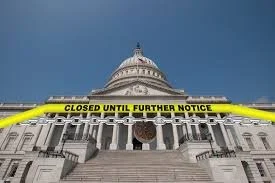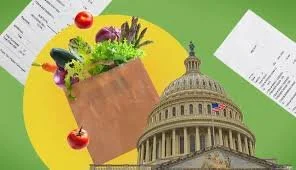When Politics Take Away a Meal: SNAP Benefits Caught in the Shutdown
As the government shutdown drags into its fourth week, the effects are starting to hit where it hurts most — people’s kitchens. Millions of Americans who depend on SNAP benefits to put food on the table are now being told that November payments may never come.
The Supplemental Nutrition Assistance Program, or SNAP, is the difference between eating and going hungry for about 42 million Americans — roughly one in eight people in the country. It’s how families buy groceries when paychecks fall short or rent eats up too much of their income. But this week, the U.S. Department of Agriculture announced that it won’t release November benefits unless Congress ends the shutdown or a court forces its hand.
The shutdown itself stems from a budget standoff between Republicans and Democrats in Congress. Lawmakers failed to pass a funding bill before the fiscal deadline, after disagreements over spending priorities — including cuts to social programs like SNAP. With no deal in place, the government ran out of money to fund many essential agencies. That’s how a political argument in Washington has turned into a food crisis in people’s homes.
To make matters worse, some Republican leaders have pushed for deep reductions or cancellations of SNAP funding, calling it a way to cut “unnecessary government spending.” But for families relying on it, those “cuts” translate directly into skipped meals and mounting anxiety. The decision to suspend SNAP payments during a shutdown reveals just how fragile the system is — a reminder that even basic necessities can become bargaining chips in political negotiations.
Now, 25 states — including New York, California, and Pennsylvania — are suing the federal government, arguing that the USDA has the authority and funds to keep benefits going through an emergency reserve. They claim the agency’s refusal to do so isn’t just cold-hearted, it’s unlawful.
The people hit hardest will be low-income households and communities of color. According to USDA data, about 37% of SNAP recipients are White, 26% Black, 16% Hispanic, 4% Asian, and 2% Native American. While white households make up the largest number, Black and Hispanic families are disproportionately dependent on these benefits to feed their children.
Food banks across the country are already preparing for a wave of new families, as shelves thin out and donations struggle to keep up. States like New York have declared food emergencies and started setting aside funds for local food programs — but it’s not enough to replace what millions stand to lose.
And now, the timing makes it even worse. With the holidays approaching, the idea of gathering around a table — something many take for granted — feels out of reach for those who depend on SNAP. Families who usually stretch their benefits to buy a turkey or simple holiday meal might not even have the basics.
At its core, this shutdown isn’t just about politics or budgets. It’s about how easily the most vulnerable Americans can be forgotten when power struggles take center stage. SNAP benefits aren’t a luxury — they’re a lifeline. And the fact that they can be taken away so easily should make every person watching this fight in Washington stop and think: who really pays the price when the government goes dark?



